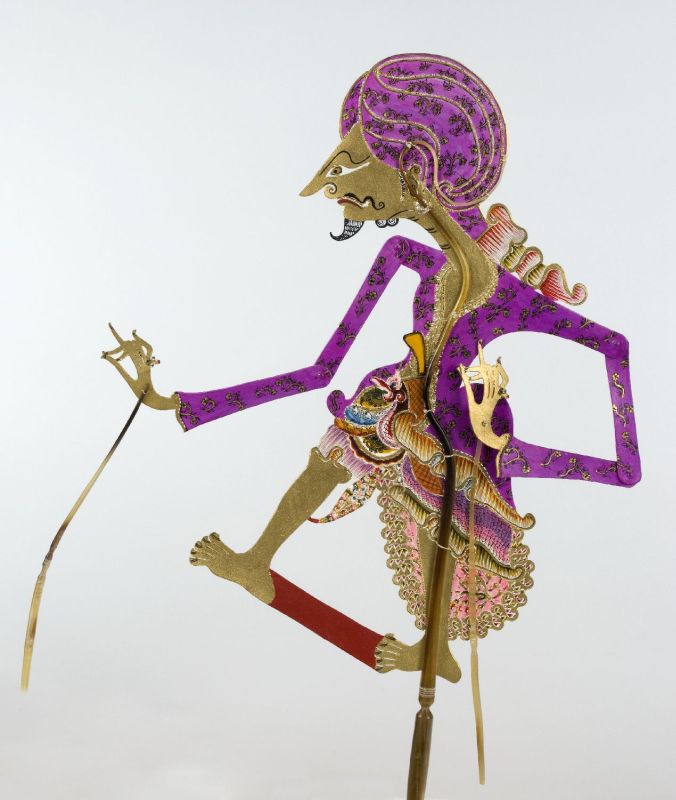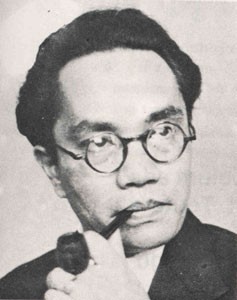|
Ahmad Azhary
Ahmad Azhary (1900–1969) was an Indonesian kyai and politician from South Sumatra. A leading religious scholar from the city of Palembang, he was active in Indonesian politics during the Indonesian National Revolution and the later Liberal democracy period in the country. During his time in government, he was appointed to fill the office of Minister of Religious Affairs in the First Amir Sjarifuddin Cabinet, though he never assumed the post. In addition to being appointed minister, he was a member of both the national legislature and the constitutional assembly during the 1950s. Born as the only son of a family of traders, Azhary was educated abroad in Egypt, attending Al Azhar University in Cairo. After seven years abroad, he returned to the Dutch East Indies, and founded his own school in 1934. A few years after his return, he became involved in the Indonesian Islamic Union Party (PSII). Following the proclamation of independence and the beginning of the National Revoluti ... [...More Info...] [...Related Items...] OR: [Wikipedia] [Google] [Baidu] |
Kyai
A kyai ( ) is an expert in Islam. This denomination is usually used among the ethnic Javanese people. Origins The word kyai is originally from Javanese. Sometimes, it is spelled kiai. Traditionally, students of Islam in Indonesia would study in a boarding school known as a pesantren. As a form of respect, the leader of the school was referred to as kyai. The traditional word for a teacher in Islam is ustad, which is a Arabic word. Because Islam is one of the religions with the most followers, many ustads in Indonesia teach the religion. Education Kiai were educated in various pesantren: A student in a pesantren is called a santri. After the founding kyai of a pesantren dies, his son or another santri may take over the supervision of the school and would then be called kyai. It is possible for a large boarding school to have several kyai living and teaching there. However, most pesantren have a few hundred students, with only one person who is called kyai. The other teachers ... [...More Info...] [...Related Items...] OR: [Wikipedia] [Google] [Baidu] |
Politics Of Indonesia
The politics of Indonesia take place in the framework of a presidential representative democratic republic whereby the President of Indonesia is both head of state and head of government and of a multi-party system. Executive power is exercised by the government. Legislative power is vested in both the government and the bicameral People's Consultative Assembly. The judiciary is independent of the executive and the legislature.King, Blair. Inside Indonesia:Constitutional tinkering: The search for consensus is taking time access date 23 May 2009 The 1945 constitution provided for a limited separation of executive, legislative and judicial power. The governmental system has been described as "presidential with parliamentary characteristics". Indonesia was democratic upon independence, but became authoritarian in 1957 under Sukarno. It remained authoritarian under his successor Suharto until the Indonesian riots of May 1998 and the resignation of President Suharto, which led ... [...More Info...] [...Related Items...] OR: [Wikipedia] [Google] [Baidu] |
1900 Births
As of March 1 ( O.S. February 17), when the Julian calendar acknowledged a leap day and the Gregorian calendar did not, the Julian calendar fell one day further behind, bringing the difference to 13 days until February 28 ( O.S. February 15), 2100. Summary Political and military The year 1900 was the end of the 19th century and the beginning of the 20th century. Two days into the new year, the U.S. Secretary of State John Hay announced the Open Door Policy regarding China, advocating for equal access for all nations to the Chinese market. The Galveston hurricane would become the deadliest natural disaster in United States history, killing between 6,000 and 12,000 people, mostly in and near Galveston, Texas, as well as leaving 10,000 people homeless, destroying 7,000 buildings of all kinds in Galveston. As of 2025, it remains the fourth deadliest Atlantic hurricane on record. An ongoing Boxer Rebellion in China escalates with multiple attacks by the Boxers on Chines ... [...More Info...] [...Related Items...] OR: [Wikipedia] [Google] [Baidu] |
Indonesian Muslims
Islam is the largest religion in Indonesia, with 87.06% of the Indonesian population identifying themselves as Muslims, based on Civil registration, civil registry data in 2023. In terms of denomination, the overwhelming majority are Sunni and Non-denominational Muslim, Non-denominational Muslims; the Pew Research Center estimates them as comprising ~99% of the country's Muslim population in 2011, with Shia Islam in Indonesia, the remaining 1% being Shia, who are concentrated around Jakarta, and about 400,000 Ahmadi Islam, Ahmadi as well. In terms of maddhab, schools of jurisprudence, based on demographic statistics, 99% of Indonesian Muslims mainly follow the Shafi'i school, although when asked, 56% do not adhere to any specific school. Trends of thought within Islam in Indonesia can be broadly categorized into two orientations: "Modernism (Islam in Indonesia), modernism", which closely adheres to orthodox theology while embracing modern learning, and "Traditionalism (Isla ... [...More Info...] [...Related Items...] OR: [Wikipedia] [Google] [Baidu] |
Pneumonia
Pneumonia is an Inflammation, inflammatory condition of the lung primarily affecting the small air sacs known as Pulmonary alveolus, alveoli. Symptoms typically include some combination of Cough#Classification, productive or dry cough, chest pain, fever, and Shortness of breath, difficulty breathing. The severity of the condition is variable. Pneumonia is usually caused by infection with viruses or bacteria, and less commonly by other microorganisms. Identifying the responsible pathogen can be difficult. Diagnosis is often based on symptoms and physical examination. Chest X-rays, blood tests, and Microbiological culture, culture of the sputum may help confirm the diagnosis. The disease may be classified by where it was acquired, such as community- or hospital-acquired or healthcare-associated pneumonia. Risk factors for pneumonia include cystic fibrosis, chronic obstructive pulmonary disease (COPD), sickle cell disease, asthma, diabetes, heart failure, a history of smoking, ... [...More Info...] [...Related Items...] OR: [Wikipedia] [Google] [Baidu] |
1955 Indonesian Constitutional Assembly Election
Elections were held in Indonesia on 15 December 1955 to elect all 514 members of the Constitutional Assembly. The Provisional Constitution of 1950 had provided for the establishment of an elected body to draw up a permanent constitution following Indonesia's independence from the Netherlands. In April 1953, the House of Representatives passed the election bill. The elections for the house were set for September 1955, while those for the Constitutional Assembly were held three months later. Results References * * * * {{Indonesian elections Legislative elections in Indonesia Indonesia Constitutional A constitution is the aggregate of fundamental principles or established precedents that constitute the legal basis of a polity, organization or other type of entity, and commonly determines how that entity is to be governed. When these princ ... Sukarno Liberal democracy period in Indonesia 1955-12 election Election and referendum articles with incomplete results Co ... [...More Info...] [...Related Items...] OR: [Wikipedia] [Google] [Baidu] |
Masyumi Party
The Council of Indonesian Muslim Associations Party (), better known as the Masyumi Party, was a major Islamic political party in Indonesia during the Liberal Democracy Era in Indonesia (1950-1957), Liberal Democracy Era in Indonesia. It was banned in 1960 by President Sukarno for supporting the Revolutionary Government of the Republic of Indonesia, PRRI rebellion. Background In 1909, a trade organization called the Islamic Trading Association () was established in Java, then part of the Dutch East Indies, to protect the interests of batik traders in the face of competition from ethnic Chinese merchants. In 1912, this became the Sarekat Islam (Islamic Union) and was headed by Western-educated Oemar Said Tjokroaminoto. Although it began as a non-political organization, it began to speak out against injustice and poverty. By 1918, it had 450,000 members. Communist influence within it grew, but so did that of the reformist Islamic Muhammadiyah organization, which was anti-commun ... [...More Info...] [...Related Items...] OR: [Wikipedia] [Google] [Baidu] |
Cornell University
Cornell University is a Private university, private Ivy League research university based in Ithaca, New York, United States. The university was co-founded by American philanthropist Ezra Cornell and historian and educator Andrew Dickson White in 1865. Since its founding, Cornell University has been a Mixed-sex education, co-educational and nonsectarian institution. As of fall 2024, the student body included 16,128 undergraduate and 10,665 graduate students from all 50 U.S. states and 130 countries. The university is organized into eight Undergraduate education, undergraduate colleges and seven Postgraduate education, graduate divisions on its main Ithaca campus. Each college and academic division has near autonomy in defining its respective admission standards and academic curriculum. In addition to its primary campus in Ithaca, Cornell University administers three satellite campuses, including two in New York City, the Weill Cornell Medicine, medical school and ... [...More Info...] [...Related Items...] OR: [Wikipedia] [Google] [Baidu] |
Amir Sjarifuddin
Amir Sjarifuddin Harahap ( EVO: Amir Sjarifoeddin Harahap; 27 April 1907 – 19 December 1948) was an Indonesian politician and journalist who served as the second prime minister of Indonesia from 1947 until 1948. A major leader of the left wing during the Indonesian National Revolution, he previously served as Minister of Information from 1945 until 1946 and Minister of Defense from 1945 until 1948. Amir was born into the Sumatran aristocracy and was educated at Leiden University. At Leiden, he became a member of the board of the Gymnasium student association in Haarlem and was involved in the Batak student organization '' Jong Batak''. He returned to Indonesia due to family troubles but continued his education at the '' Rechts Hogeschool'' in Batavia. After graduating, he became active in literary and journalist circles, joining the editorial board of the newspaper ''Panorama''. He also became involved with left-wing politics and led a group of younger Marxists in the ... [...More Info...] [...Related Items...] OR: [Wikipedia] [Google] [Baidu] |
Prime Minister Of Indonesia
The Prime Minister of the Republic of Indonesia () was a political office in Indonesia which existed from 1945 until 1966. During this period, the prime minister was in charge of the cabinet of Indonesia, one of the three branches of government along with the House of Representatives and the president. Following his 1959 decree, President Sukarno assumed the role and powers of prime minister until his resignation in 1966. Indonesian National Revolution On 18 August 1945, a day after the Proclamation of Indonesian Independence, Sukarno was appointed president and the 1945 Constitution of Indonesia came into force, which stated that Indonesia was built around a presidential system; as such, there were no constitutional provisions for a prime minister, and the cabinet was directly responsible to the president. However following Vice-Presidential Edict No.X, on 11 November the cabinet was made responsible to the provisional legislature, the Central Indonesian National Committ ... [...More Info...] [...Related Items...] OR: [Wikipedia] [Google] [Baidu] |
Proclamation Of Indonesian Independence
The Proclamation of Indonesian Independence (, or simply ''Proklamasi'') was read at 10:00 Tokyo Standard Time on Friday 17 August 1945 in Jakarta. The declaration marked the start of the diplomatic and armed resistance of the Indonesian National Revolution, fighting against the forces of the Netherlands and pro-Dutch civilians, until the latter officially acknowledged Indonesia's independence in 1949. The document was signed by Sukarno and Mohammad Hatta, who were appointed president and vice-president respectively the following day. The date of the Proclamation of Indonesian Independence was made a public holiday by a government decree issued on 18 June 1946. Background The beginnings of the independence movement In 1918, the Dutch authorities in the Dutch East Indies established a partly-elected People's Council, the '' Volksraad'', which for the first time gave Indonesian nationalists a voice. Meanwhile, Indonesian students studying in the Netherlands formed the Perhimpo ... [...More Info...] [...Related Items...] OR: [Wikipedia] [Google] [Baidu] |






